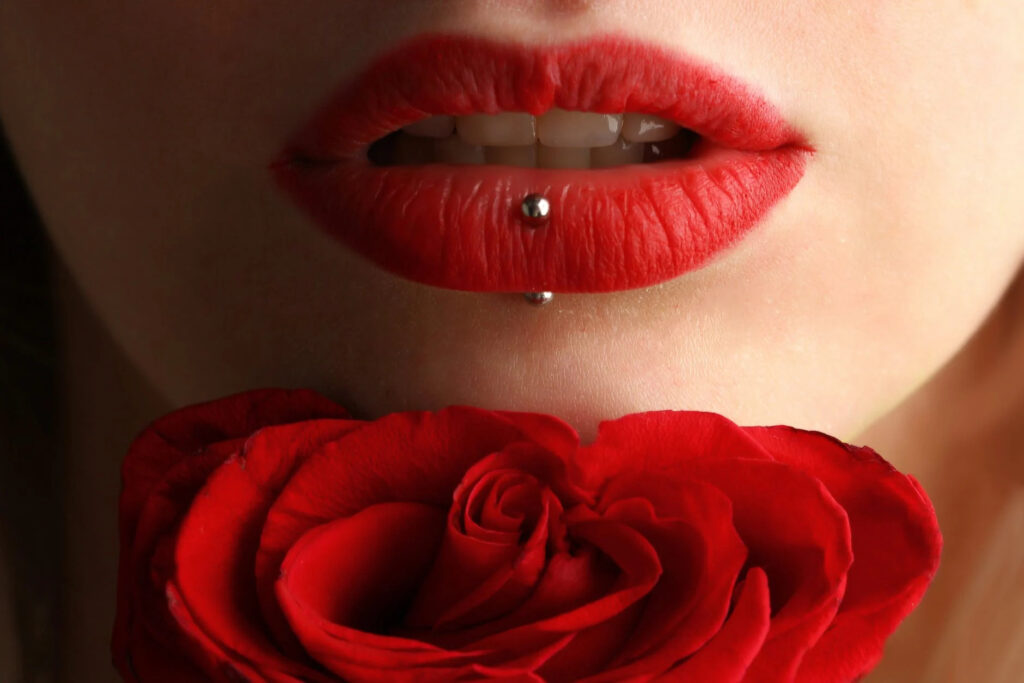People walking around with cocktail sticks in their ears (and other parts of their bodies) is a common sight these days. It seems like we’re all jumping on the self-piercing bandwagon.
But is it actually a good idea? Well, you probably won’t be surprised to learn that the answer is “no” – it’s not.
There’s a good reason for this: hygiene. It’s hard for people to pierce their ears and avoid getting inflammation and infection. You need to sterilize everything, make sure that it has no germs, and then ensure that you keep the area infection-free in the future. It’s not easy.
And the problems only get worse, the more peripheral the body part you’re looking to pierce. If it’s right on the extremity, like the ear, it can be harder for the immune system to respond and clear up infection, particularly if you’re a little bit older.
Remember, there’s a reason why people go to professionals. You wouldn’t attempt a root canal at home, so why would you do your own piercings? It doesn’t make sense.
It’s Not Easy
Getting a piercing isn’t as easy as it looks. You think all you’re doing is putting a needle through your skin, but that’s not entirely true. Using a straight pin and cork is an option, but you’ll wind up with all sorts of problems. For the last fifty years, people have been giving themselves botched holes, torn flesh, infections and even gangrene.
What’s more, we’re not just piercing earlobes anymore. In modern times, things have changed a lot. People are now piercing parts of their bodies that would never have been pierced in the past. Thanks to marketing, it is becoming mainstream. These body parts tend to be more central and sensitive, leading to additional complications. Places like your navel are close to all sorts of vital organs, whilst your nose is full of sensitive nerves and can be difficult to clean if it gets infected. For this reason, it’s a good idea to work closely with experienced professionals who can do your Nose Piercing in Midtown NYC (or indeed elsewhere) to have some peace of mind that the procedure will be done safely in a way that reduces the chance of any long term pain or problems.
What Should DIYers Do?

There are three things that you need if you want to pierce your own body. The first is education. If you don’t have this, you’ll be much more liable to make basic errors. Just wading in and hoping for the best will harm you.
The next is the right equipment. At the very least, you need your tools (and the area you’re going to pierce) to be entirely sterile.
And lastly, it helps if you have some experience doing it before. Giving yourself a new piercing shouldn’t be a big deal. It should just feel like any other task that you need to do in the day.
When you go to piercing experts, you’ll often find that they have a wealth of knowledge about what to do and where to pierce. Many have done it thousands of times before and have seen just about every type of body you can imagine. They also have insurance which means, if something does go wrong, they can pay for any medical treatment that you need as a result of their work.
In many cases, professionals pay large sums of money to learn how to perform their craft. Some go to school for a couple of years to learn what they need to do. For them, it is a tremendous investment.
When looking for somebody who does piercings, find someone who respects you. You’ll find that many professionals who do it for a living love and cherish their craft. They want to give people great piercings that they can take forward with them in their lives, getting the most out of what they do. They know that nose studs, earrings, lip studs, and belly studs can make a huge difference to how people feel. That’s why their work is more of a vocation for them, not just a job.
What Do Doctors Say?
Doctors have pretty strong opinions about DIY piercings – that you shouldn’t do them. That shouldn’t come as much surprise to most people: doctors tend to be on the cautious side of things most of the time. But, of course, they are the people who are dealing with the consequences.
Around a third of all DIY piercings, they say, result in some sort of complication. So your odds of something going wrong is around 1 in 3. Doctors say that they are seeing more people coming to them for treatment because they didn’t go to a professional first. And, usually, that’s costing them more money overall.
Professional piercers aren’t actually that expensive. It’s not the same as getting a tattoo. Most offer a quick service, seeing one client after another, thereby reducing the price.
If you’re worried about it, go with a friend. You can both get it done together instead of attempting it yourself with a bobby pin.
If You Still Want To Pierce Yourself
If you still want to pierce your own ears, there’s a right way, and a wrong way, to do it. Make sure that you take advice from people who actually know what they are talking about, otherwise you could wind up with redness and infection.
Make sure that you clean the area that you want to pierce first. You can do this using an alcohol solution – something that you can buy online. Make sure that it is at least 70 percent alcohol, otherwise germs might survive.
Also, be sure to clean all your implements – anything that is going to come into contact with your body. Wash your hands with soap, hot water and sanitizer before you touch any implements. Sometimes people wash implements, forgetting about the germs lurking on their hands.
You’ll also want to make sure that anything your implement touches is also sterile. Clean as many parts of the room as you can before you begin.
When you pierce parts of your body, there may be blood. Look carefully at the surface of the skin for areas that look like blood vessels. Avoid these. Hitting them can lead to a lot of bleeding.
Remember, when you go to a professional piercer, it usually only takes a few minutes to complete the piercing. However, when you do it yourself, it can take a lot of time. If you’re okay with prodding yourself for 60 minutes, then that shouldn’t be an issue. But most people prefer for it to be over as soon as possible.
After A Piercing
After your piercing, you’ll want to invest in aftercare products. These are gentle and soothing on your piercing and help to reduce any inflammation that you may have. You’ll want to use these products whether you’re going down the DIY route or having your piercings done professionally.
Most people clean their piercing with saline solution two or three times per day. Saline is a gentle antibacterial agent which is just salty water.
For the first few weeks after your piercing, try not to sleep on it. Don’t play with it. Instead, leave it alone and allow the body time to heal. If you touch it with your hands, you’re much more likely to bring germs to the area which could take advantage of the broken skin.
After around six weeks, the piercing should be ready for jewelry. You’ll need to wait this long because it can take the body a while to heal and repair all the broken tissue. To keep yourself occupied, you can go shopping in advance, looking for the perfect stud or earring.
In summary, most experts recommend against DIY. However, if you do decide to go down that route, make sure that you follow best practices highlighted above.

